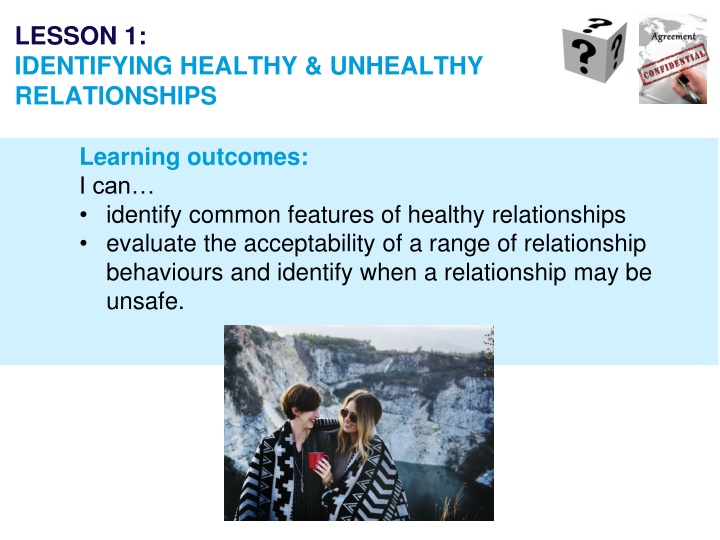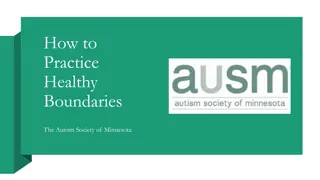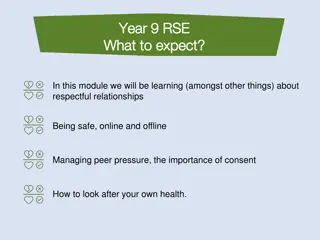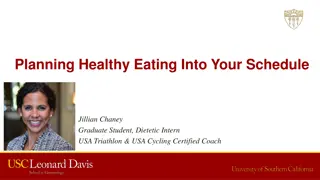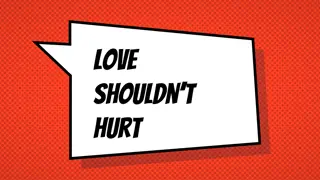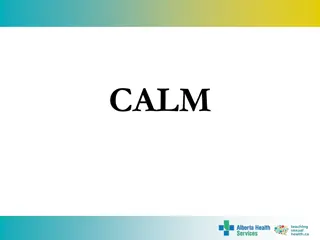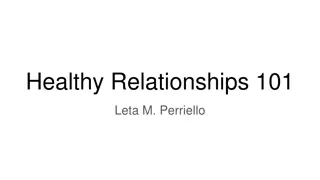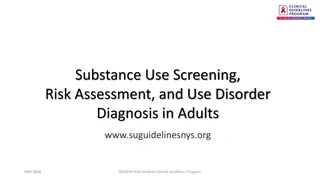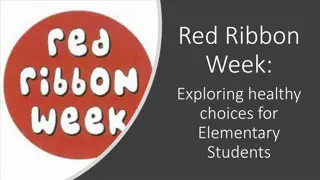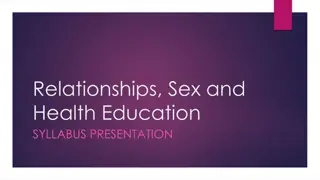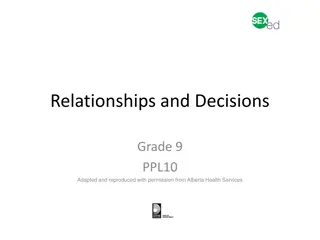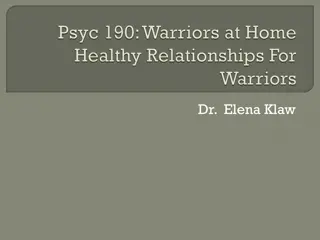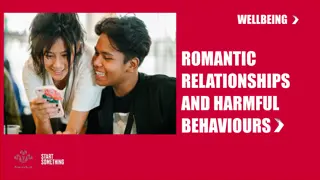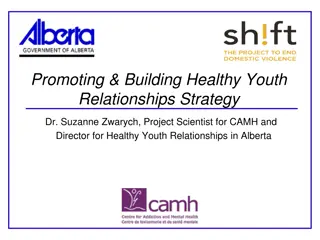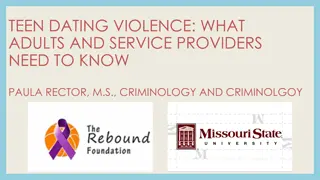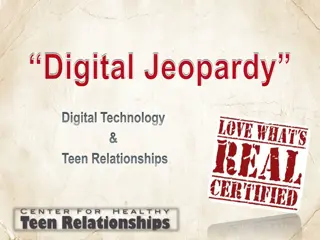Identifying Healthy vs Unhealthy Relationships
Explore the key features of healthy relationships, assess behaviors in relationships, and determine safety. Understand rights and responsibilities in a classroom setting. Analyze relationship attitudes and qualities to distinguish between healthy and unhealthy dynamics. Engage in activities like evaluating online posts and using relationship traffic lights to classify behaviors.
Download Presentation

Please find below an Image/Link to download the presentation.
The content on the website is provided AS IS for your information and personal use only. It may not be sold, licensed, or shared on other websites without obtaining consent from the author.If you encounter any issues during the download, it is possible that the publisher has removed the file from their server.
You are allowed to download the files provided on this website for personal or commercial use, subject to the condition that they are used lawfully. All files are the property of their respective owners.
The content on the website is provided AS IS for your information and personal use only. It may not be sold, licensed, or shared on other websites without obtaining consent from the author.
E N D
Presentation Transcript
LESSON 1: IDENTIFYING HEALTHY & UNHEALTHY RELATIONSHIPS Learning outcomes: I can identify common features of healthy relationships evaluate the acceptability of a range of relationship behaviours and identify when a relationship may be unsafe.
RIGHTS AND RESPONSIBILITIES WITHIN THE CLASSROOM What rights and responsibilities should we include in a class agreement during the next 4 lessons?
RELATIONSHIP ATTITUDES Task: How far do you agree or disagree with each of the statements?
RELATIONSHIP QUALITIES & BEHAVIOURS Are these features of a healthy or unhealthy relationship? Place the cards along a continuum drawn in your books. It depends Healthy Unhealthy
ONLINE POSTS Task: Read the online forum post. Assess whether: (a) the behaviours are healthy or unhealthy (b) the advice is appropriate if not, what advice would be more helpful?
RELATIONSHIPS TRAFFIC LIGHTS Is this behaviour supportive, it depends, or controlling? 7. Putting them down, especially in public 1. Asking your friend/partner how they are feeling when you see them 8. Taking them out somewhere they really want to go 2. Giving them a hug when they re upset 9. Having to do what their friend/partner wants just to avoid arguments 3. Telling them they re loved 4. Phoning them and texting them all the time 10. Telling them they look nice 5. Smiling at them 11. Ignoring them when they re out with his/her friends 6. Expecting them to wait for calls 12. Turning up to surprise them
MANAGING RELATIONSHIPS 1. Why do people sometimes respond in less helpful ways when they are having relationship difficulties? 2. Are there any times when behaving assertively would not be advisable? 3. Were there any scenarios where the behaviour of someone worried you?
WHICH HAS MOST BENEFICIAL CONSEQUENCES? Select a situation and suggest 3 or 4 possible responses based on the passive, assertive and aggressive communication styles. A classmate has just ruined your bag by spilling their bright pink drink all over it. 1 A teacher has wrongly accused a student of forgetting to hand in their homework they actually sent it via email last week. 2 A friend asked to borrow a game disk but they ve passed it back with a scratch on it and it doesn t work properly any more. 3 Let your partner explain which was the best response in their opinion and why. Afterwards, swap roles and pick a new scenario.
SIGNPOSTING If you want to talk to someone about today s lesson: Tutor or Head of Year
